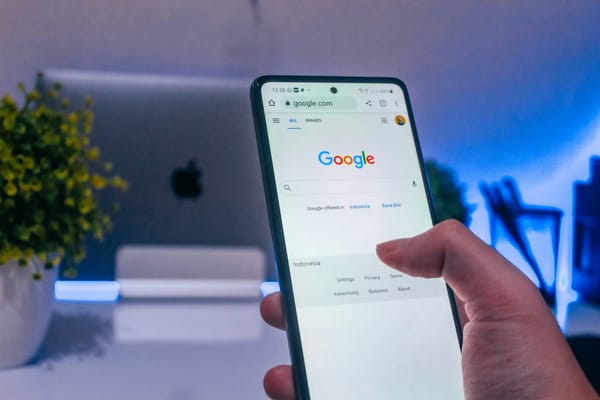Elon closes in
With Twitter all but his, employee surveys from 2019 to today show how a leadership vacuum hurt the company

Just over six months from the day Elon Musk announced his intention to buy Twitter, three months from his first attempt to scuttle the deal, and three weeks after he apparently fell back in love with the platform, the deal appears to be all but closed.
The billionaire Tesla CEO has changed his Twitter bio to Chief Twit. On Thursday his biographer Walter Isaacson posted a picture of Musk hobnobbing with Twitter employees at its San Francisco headquarters. He brought in Tesla engineers to “assess” the company’s code. And in a conciliatory post, Musk promised advertisers that under his watch Twitter would not be “a free-for-all hellscape, where anything can be said with no consequences.”
“Advertising, when done right, can delight, entertain, and inform you,” he wrote — an acknowledgement, perhaps, that ads accounted for 89 percent of Twitter’s revenue last year.
We write all this, purposefully, to tempt fate: few events could be funnier, or better for Twitter and its employees, for Musk to change his mind once again at 4:45PM on Friday.
That said, it’s worth noting that, whatever Twitter may be about to go through, the purgatory the company now finds itself in long predates Musk’s involvement. Under former CEO Jack Dorsey, the company struggled to build a profitable business, despite operating a service with outsized cultural influence and one of the world’s most elite user bases. And Twitter’s weak leadership had proven to be a drag on company morale.
Documents shared with Platformer, as well as interviews with current and former employees, illustrate how Dorsey’s waning attention to the platform, coupled with dissatisfaction with the company’s response to the COVID-19 pandemic, trust and safety issues, and other challenges, had left a significant percentage of the company in a malaise.
Musk is expected to lay off, at a minimum, hundreds of employees (though not 75 percent of them, as the Washington Post previously reported that he told bankers). Internal surveys about employee satisfaction show a company suffering from a leadership vacuum. The question now is whether, or how, Musk will fill it.
***
If the emails from Twitter executives were to be believed, November 2021 was the dawn of a new era for Twitter.
Jack Dorsey had just ended his second, six-year run as CEO. This was exciting, his lieutenants wrote, in memos to the whole company. Parag Agrawal, the new CEO, was “rigorous and incredibly sharp,” according to Kayvon Beykpour, Twitter’s general manager. “The momentum and trajectory that we have at Twitter is 🔥,” he added.
“Our strategy has never been better and our team is stronger than ever,” promised Michael Montano, Twitter’s head of engineering.
Six months later, both executives were gone, and Elon Musk was poised to buy the company. Twitter was indeed in a new era — just not the one most employees might have hoped for.
It’s easy to pin Twitter’s current morale crisis on Musk. And to be sure, months of lawsuits and public criticism of executives and its products have contributed to higher-than-average turnover. But satisfaction surveys from 2019 to 2022 suggest the decline in employee morale long predates Musk’s arrival on the scene. In the most recent survey, which came out in April of this year, employee engagement — a metric that combines employees’ reported pride in the company, their likelihood to refer a friend for a job, and their intent to remain at Twitter — got a score of 69, down 13 points from the year before.
In fact, across the 39 metrics that Twitter measures, 32 had declined in the most recent report. “Communication flow” went down 12 points, “internal communications” went down 16 points, and “intent to stay” went down 11 points. The largest drop, by far, was in “company confidence.” It declined by 24 points.
Employees say that while Elon Musk might have acted as an accelerant to the present malaise, years of ineffective leadership had taken their toll. Now, many are headed for the door.
“The choice right now is either the deal closes and I work for a kind of weird sociopath, or it doesn’t and our stock goes down even more, and I get paid 50 percent of what I made a year ago,” says an employee who recently left.
***
On Blind, the anonymous forum for current and former employees, many Twitter employees have blamed Dorsey for the current crisis. A post from last week that titled “Fuck you Jack,” has 131 likes and 34 comments, which range from “that fucking idiot,” to “fuck him,” to “Fuuuuuuuuuuuuuuck that guy.”
Dorsey did not respond to a request for comment.
Those sentiments reflected the raw emotion many employees are now feeling as they worry for their jobs and the service they have built. And there’s a direct line from this week’s Blind posts to Twitter’s 2019 employee survey, when employees voiced frustration at the lack of communication coming from Dorsey and other company leaders.
In that survey, “communication and processes,” received a score of 60. (Twitter considers scores of 74 or higher “strengths.”) “For communication and processes, we know that our existing processes don’t enable us to do our best work, especially when making decisions cross functionally,” the company summarized in a report.
By the end of that year, the company had managed to break a log jam in its product division: it began removing abusive tweets more quickly, added search to direct messages, and started letting you hide unwanted replies to tweets. But a certain sense of aimlessness persisted at Twitter: Dorsey floated the idea of moving to Africa, and announced a vague effort to “decentralize” Twitter.
But morale at the company rose as it began to ship products more consistently. By April 2021, Twitter’s engagement score was 82, a recent high.
By October 2021, though, cracks were beginning to show. The company had made it through the pandemic, but survey participation had begun to decline, and various happiness metrics along with it. “We may now be in a phase where concerns about COVID-19 are no longer the top priority for Tweeps,” the company wrote, but “other non-COVID-19 related challenges may be starting to have a larger impact.”
Among the scores that had declined were company pride, down three points, likelihood to recommend Twitter to a friend, down four points, and intent to stay at Twitter, down three points. “Looking at intent to stay, 13 percent of the Tweepforce report they plan to leave the company within the next 2 years,” the company wrote.
Part of the issue was an article that had been published in the New York Times about Twitter’s former design chief, Dantley Davis. The Times said Dorsey had pushed out Nikkia Reveillac, a beloved Black female leader, after she’d complained about Davis’ management. Employees felt frustrated that they were hearing about personnel issues from the Times rather than company leaders.
“Comments around recent events impacting company morale (NYT … articles, MoPub sale announcement) are cited as reasons for drops in engagement and indicate a possible decrease in trust in company-wide processes and communications,” the company wrote.
The company added that while employees might believe decisions were made fairly, they were often communicated after the fact. The company seemed less open than it had been before.
No one knew this at the time, but Twitter’s lack of transparency was about to get worse.
***
In April 2022, in the days before Musk announced his intention to buy the company, Twitter again surveyed its employees. Employee “engagement” — received a score of 69, down another nine points since the previous October.
By then, Agrawal had taken over as CEO. He was early into his plans for remaking Twitter, and had scarcely gotten to work before Musk announced he had taken a large position in the company and thrown it into turmoil.
Around then, Twitter asked employees questions in various categories, and then assigned each one a “favorability score” — the percentage of employees who responded positively to a given item. Only 24 percent of employees said the company was “doing a good job of communicating with employees.”
Since then, employees say, communications have not improved. The company has communicated little with its workers amid the legal drama with Musk, seeking to preserve its $44 billion acquisition and avoid the lawsuits and turmoil that would come with a broken deal.
Employees say they often find out about the latest twist in the Musk saga from the news, rather than company leaders. Agrawal, the leader employees once hoped would be more engaged than his predecessor, is largely absent.
“He’s so predictable at this point it’s kind of comical,” wrote an employee in Blind. “I can automate a script to do the job.”
The employee then posted a satirical piece of code suggesting that Agrawal’s job was mostly to offer employees platitudes (“don’t get distracted”) and await the closing of the deal.
***
In the months since April, stress on employees has only increased. On Thursday, they hobnobbed with Musk at the company’s coffee bar at his San Francisco headquarters, peppering him with questions about his plans for the company. Their anxiety was evident.
“I know we’re all super excited to meet you,” an employee asks him, in a video obtained by Platformer. “But I think the real question everyone’s thinking is, are you going to fire 75 percent of us?”
Employees laughed nervously as Musk briefly stared at the ceiling.
“You know, I’m not actually sure where that number came from, because … no,” Musk said. “It didn’t come from me.”
Later in the day, employees received a calendar invitation for an “All Birds Check In” to begin at 4:35PM PT. Billed as a “quick informal check in” with product chief Jay Sullivan, the meeting promised to provide employees with some of the information that they have been seeking all year.
Instead, though, shortly after it was announced, the meeting disappeared from the calendar. “Cancelling until further notice,” an update read.
No further information was given.
Elsewhere in Twitter: The heaviest tweeters have started to abandon the service, internal research finds. And: What will Musk’s Twitter mean for the midterms?
The Wire
The Wire formally retracted its Meta stories, and said it was deceived by a member of its reporting team. The paper did not say who the perpetrator was — although we can guess – writing only that they are no longer associated with the organization.
Now Amit Malviya, head of IT for the BJP, announced he is suing the publication for defamation. Malviya was the subject of The Wire’s first report on Meta — the politician whom the paper said could get Instagram posts taken down at will. This is either a darkly ironic twist or exactly what was supposed to happen — we may never know.

On the podcast this week: Kevin and I talk with Times’ Twitter beat reporter Kate Conger about what Musk’s first 100 days running the company might look like. Later in the show, we discuss whether Apple’s recent changes to App Store guidelines are strangling the digital economy.
Get it here:
Apple | Spotify | Stitcher | Amazon | Google
Governing
- Facebook and Instagram are running millions of dollars in ads from “pink-slime newsrooms” — partisan organizations masquerading as local media outlets — in battleground states ahead of the midterms. (Davey Alba / Bloomberg)
- Google agreed to improve its compliance program that handles responses to legal demands like subpoenas and search warrants in a settlement with the US Justice Department. (Richard Vanderford / Wall Street Journal)
- Meta was fined nearly $25 million for repeatedly violating Washington’s campaign finance laws, which require ad sellers to disclose the names and addresses of political ad buyers, among other requirements. (David Gutman / Seattle Times)
- Women of color who run for office are more than four times as likely as white candidates to be targeted with violent abuse online, according to a new study. (Cat Zakrzewski / Washington Post)
- In Brazil, disinformation is spreading on Telegram, Gettr, and Rumble, fueling one of the most bitter elections in recent history. (Anna Edgerton and Andrew Rosati / Bloomberg)
- Police in El Salvador are arresting people based off social media tips with little evidence they’ve actually committed crimes. (Anna-Cat Brigida / Rest of World)
- The head of the UK’s independent privacy watchdog issued a warning against emotional analysis technology, saying the risks associated with it far outweigh potential benefits. (Mack DeGeurin / Gizmodo)
- The DNC is rolling out the red carpet for TikTok influencers in DC to try and encourage young people to vote in the midterms. (Taylor Lorenz / Washington Post)
Industry
- Meta lost 70% of its value this year and is now worth less than Home Depot. (Ari Levy / CNBC)
- Meta announced a consumer-grade Quest headset will arrive in 2023. (Nick Statt / Protocol)
- Instagram now has 2 billion monthly active users, as the app continues to close in on the 2.96 billion who regularly use Facebook. (Alex Barinka / Bloomberg)
- TikTok is adding a dedicated gaming tab to the app as the company expands beyond short form video. (Cristina Criddle and Patrick McGee / Financial Times)
- Apple updated its App Store rules to require iOS developers to use in-app purchases on “sales of ‘boosts’ for posts in a social media app,” a change that primarily affects Facebook and Instagram. (Alex Heath / The Verge)
- After Apple rolled out new ad placements in the App Store, several prominent developers complained about gambling ads appearing on their app listings. Apple later said it would “pause” the ads. (Joe Rossignol / MacRumors)
- Apple reported record revenue, continuing a pandemic-fueled streak, with sales from the iPhone at $42.6 billion, up 9.7 percent from last year. (Aaron Tilley / Wall Street Journal)
- Amazon stock fell 19 percent in after hours trading after the company reported weaker-than-expected earnings and revenue for the third quarter and gave a disappointing fourth-quarter sales forecast. (Annie Palmer / CNBC)
- Pinterest stock gained more than 15 percent after the company reported third-quarter revenue that beat analysts’ estimates. (Alex Barinka / Bloomberg)
- Andreessen Horowitz is slowing down its investments in crypto after its flagship fund lost 40 percent of its value this year, but the firm remains committed to Web3. (Berber Jin / Wall Street Journal)
- Microsoft is struggling with its augmented reality ambitions and has shelved plans for a new version of the HoloLens headset. (Aaron Tilley / Wall Street Journal)
- Andy Rubin, the disgraced Google executive who was accused of sexual misconduct and received a $90 million payout, has a new startup focused on home surveillance. (Jon Victor / The Information)
- Snapchat rolled out more advanced video editing tools with Director Mode, echoing popular features from TikTok and BeReal. (Mia Sato / The Verge)
- Snapchat is significantly lowering the amount it pays creators who use its short-form video feature Spotlight. (Dan Whateley, Amanda Perelli and JP Mangalindan / Insider)
- YouTube is going to let doctors and nurses apply to be labeled as reliable sources of health information on the platform. Very interested to see how this one plays out. (Nicole Wetsman / The Verge)
- Hinge is rolling out a new profile verification feature that will require users to take a video selfie to confirm they’re a real person. (Lauren Goode / Wired)
- LinkedIn is rolling out new features to help users evaluate the authenticity of other peoples’ accounts before engaging with them. (Clare Duffy / CNN)
- LinkedIn influencers are turning to ghostwriters to help them with their content strategy. This used to be my job until Casey saved me. (Rebecca Jennings / Vox)
Those good tweets
Everyone needs a Content Friend (someone you send 5-100 links to per day stream of consciousness style)
— kelsey weekman (@kelsaywhat) 4:30 PM ∙ Oct 26, 2022
You better be texting your girl every single day bc Beto certainly is
— Karen, Esq. (@comradeflirty) 9:41 PM ∙ Oct 25, 2022
wish haunted houses had like a "chicken night" where you could walk through but nothing would jump scare you. all the monsters would be there but they'd just say hi and explain their little room's lore.
— Big Spoopy Tim 🎃 (@bigmoneytim) 3:12 PM ∙ Oct 27, 2022
— old people online (@oldpplonline) 2:45 AM ∙ Oct 27, 2022
Talk to us
Send us tips, comments, questions, and Twitter morale boosters: casey@platformer.news and zoe@platformer.news.






